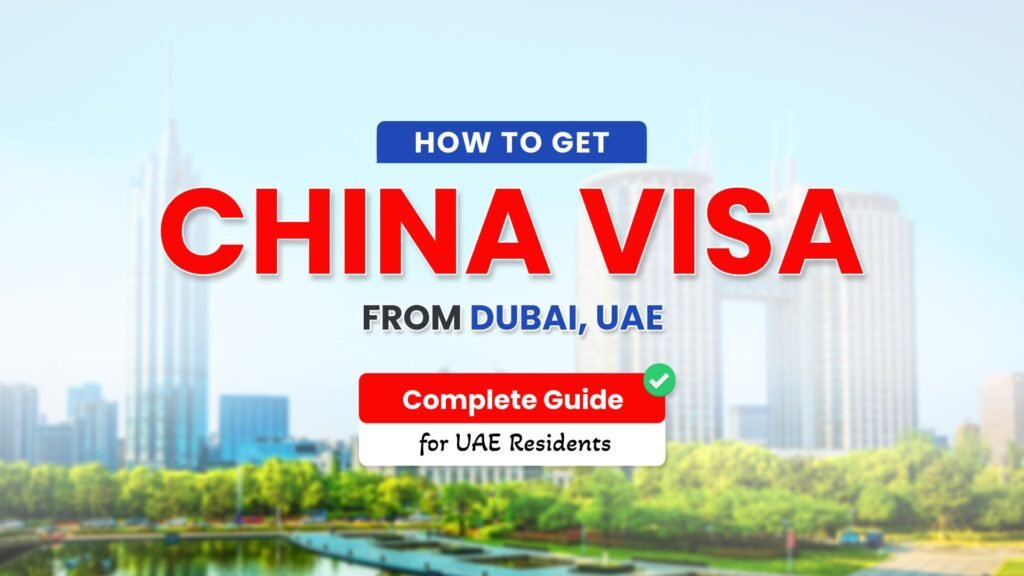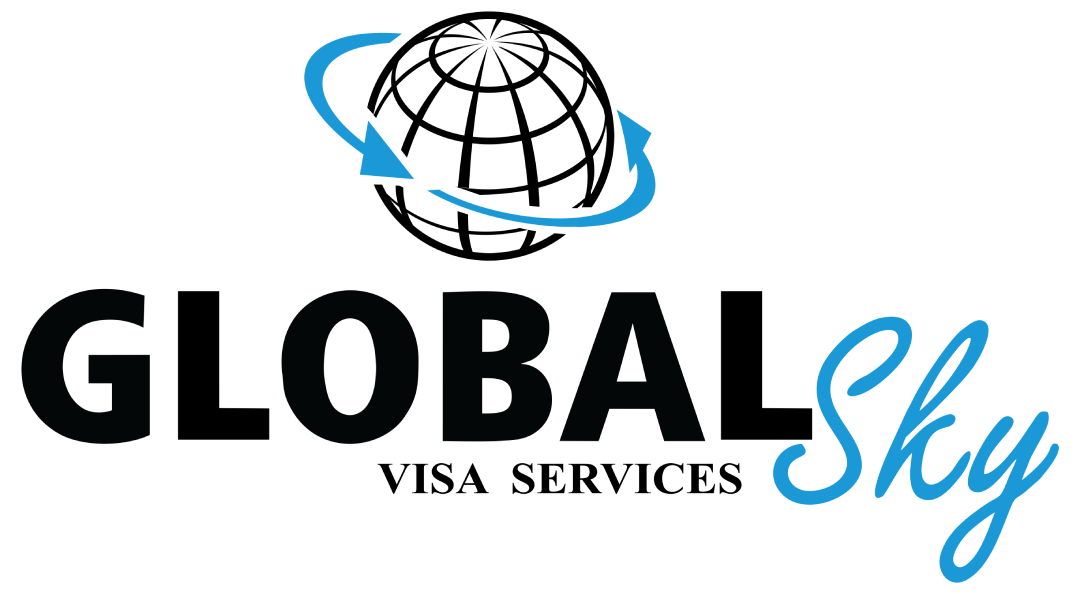
If you’re in the UAE and eyeing the Great Wall, a trade fair in Guangzhou, or time with family, your first step is the right visa—done cleanly, with zero last-minute drama. Here’s a professional, plain-English walkthrough that feels like someone talking you through it at a café.
Who actually needs a visa?
Rules depend on passport nationality, not just the fact you live in the UAE.
-
Emirati citizens can generally enter visa-free for short stays (often up to 30 days) from global sky visa services
-
Most expatriate residents will need a visa that matches their trip purpose (tourism, business, family, work, study).
Do a quick eligibility check before you book anything non-refundable. Sixty seconds now beats rebooking later.
Pick the right visa (keep it honest and simple)
China’s main short-stay categories you’ll see:
-
L Visa (Tourist): sightseeing, leisure, visiting friends.
-
M Visa (Business): meetings, negotiations, trade fairs, factory visits.
-
F Visa (Visit/Exchange): cultural exchanges, study tours, short research.
-
Z Visa (Work): employment in China (needs official pre-approval).
Choose the visa that matches what you’ll really do. Visa officers like plans that make sense on first read.
Your document kit (tidy, consistent, complete)
Treat documents like a well-packed carry-on—everything in its place. Expect to prepare:
-
Passport valid at least 6 months with 2 blank pages.
-
UAE residence visa (often asked to be valid 6 months).
-
Completed China visa form (filled online, then printed and signed).
-
Recent passport photo (white/light background; follow the center’s specs).
-
Travel plans: flight bookings and hotel confirmations (refundable is smart until your visa is issued).
-
For business (M): invitation on Chinese company letterhead (with stamp), including your full name, passport number, dates, cities, purpose, who covers expenses, and inviter’s contact details.
-
For family visits: invitation from your host, copy of their Chinese ID/residence permit, and proof of relationship (e.g., marriage or birth certificate).
-
Extras by case: bank statements, employer letter, or previous China visas—only if requested or relevant.
Naming files clearly helps: “Hotel_Beijing_12-15Nov.pdf” beats “scan002.pdf.” Small habit, big calm.
Where and how to apply (the practical flow)
Applications from UAE residents are handled via the Chinese Visa Application Service Center (CVASC) in Dubai or Abu Dhabi. The usual rhythm:
-
Fill the form online (CVASC site), print it, and sign where indicated.
-
Book an appointment at CVASC (slots go faster before fairs or holidays).
-
Visit in person with your full set: application, passport, photo, and supporting papers. Most applicants provide fingerprints at the center (biometric capture is quick).
-
Pay the fees (consular + service), as instructed by the center. Keep the receipt.
-
Track and wait for processing.
Fees and processing times (plan a buffer)
-
Standard processing: typically 4–7 working days.
-
Express options: sometimes available for an extra fee (e.g., 2–3 days). Availability varies.
Give yourself at least two to three weeks before your travel date. That cushion lets you keep flights and hotels flexible.
Collecting your visa (check it on the spot)
When your passport is ready, collect it from CVASC and check details immediately:
-
Name spelling
-
Passport number
-
Visa category, entries (single/double/multiple), and validity
-
Duration of stay per entry
If something’s off, raise it right there. Fixing at the counter is easier than from the airport.
How to make your application “click” at first glance
-
Keep dates aligned across form, flights, and hotels.
-
Be specific about purpose: “Five days, Canton Fair + supplier meetings in Guangzhou.”
-
If funds are requested, provide clear, complete statements. If there’s a large new deposit, add a one-line explanation (“annual bonus” or “refunded booking”).
-
Avoid over-packed itineraries that look unrealistic. Three cities in four days reads chaotic—tone it down.
Common snags—and quick fixes
-
Photo rejects: follow size/background rules exactly; avoid shadows and glare.
-
Invitation gaps: missing stamp, wrong dates, or vague purpose will slow you down. Ask your host for a clean, complete letter on letterhead.
-
Last-minute rush: peak seasons and public holidays pile up. Book early and use refundable reservations.
-
Assuming e-visa exists for everyone: China’s general visitor/business visas aren’t universal e-visas. Stick to CVASC unless you’re on a specific program that says otherwise.
Business travelers: extra polish that helps
Bring a crisp employer letter on UAE company letterhead that confirms your position, salary, approved leave, and who pays for the trip. Pair it with the Chinese invitation letter that includes the company’s full address, phone, and official stamp. If you’ve been to China often, carry copies of previous China visas and entry stamps; it shows a clean history.
Family visits: keep it connected
Along with the host’s invitation and ID/residence permit copy, add a tidy relationship proof (marriage/birth certificate). If names changed after marriage, include evidence that links old and new names. Neat bundles = fewer questions.
Travel day: have your “grab-and-show” set
Keep these within easy reach in your carry-on:
-
Passport with visa
-
Return or onward ticket
-
Hotel/host address and phone
-
A brief printed itinerary
-
Insurance certificate (if you carry one)
If an officer asks about your plan, answer in one clean sentence and smile. Short and specific wins.
Quick FAQ-style pointers
-
Can you switch visa types after applying? Usually no; apply for the correct category from the start.
-
Multiple entries? Request what you truly need. If you’ll hop in and out for suppliers or factories, say so and back it with a sensible plan.
-
Changing dates after submission? Minor shifts are fine if documents still align. Big changes may require a fresh application—ask CVASC if in doubt.
Final thoughts
A smooth China visa from Dubai is mostly about clarity and timing. Pick the right category, prepare a tidy document set, get a complete invitation if you need one, and apply early enough that you never feel rushed. Do that, and the paperwork fades into the background—leaving you free to focus on the good stuff: the view from Mutianyu, a bowl of hand-pulled noodles in Xi’an, or that first handshake that turns a meeting into a long-term deal.
